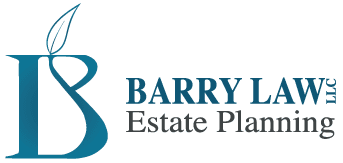A (Pre) Estate Planning Checklist to Help You Get Started.
Estate planning can feel overwhelming and confusing—there is a reason why 50-60% of Americans don’t have one in place! Seeking legal help to manage this process will likely be both necessary and invaluable.
Before meeting with your estate attorney, here is a helpful estate planning checklist to aid you while determining your needs, wishes, and priorities. Walking into your attorney’s office prepared with the information they’ll need—having already thought through your answers to complicated questions— will help save time, and keep the process streamlined and stress-free.
What do I want from my estate plan?
Setting goals you’d like to achieve, along with ensuring that your estate is distributed in accordance with your wishes, is an individual and indispensable part of life. Some common goals to consider before talking to your estate attorney include taking care of family and loved ones after you have gone, asset and estate tax management, medical wishes for end-of-life care or incapacitation, and estate disbursement instructions.
What is my estate, exactly?
After your passing, all of your assets—everything you own—become part of your estate, unless otherwise specified. While preparing to meet with your estate attorney, make a list of all assets owned, such as cash and bank accounts, real estate holdings, stocks, bonds, investments, homes, vehicles, interest in businesses, retirement accounts and annuities, insurance policies, death benefits, and more.
What debts do I have?
Outstanding debts sadly do not die with us but are paid from our estates. Some of these financial responsibilities are mortgages, credit card debt, home/auto/business loans, outstanding legal judgments/settlements, obligations to current or former spouses, etc. Knowing what will likely need to be paid upon your passing will help your attorney plan effectively.
Who are my beneficiaries?
Without a last will and testament on file, a probate court will determine how your estate is disbursed following their state’s intestacy laws. Choosing to whom you would like your assets to go—and precisely how they are distributed—is guided by naming and prioritizing beneficiaries (family, loved ones, friends, charities, trusts, etc.) in your will.
What about health care and medical treatment?
If you become incapacitated or are too ill to make decisions for yourself, it is important to have clear instructions in place to ensure that your beliefs and wishes are honored where matters of healthcare and treatment are concerned. No estate planning checklist would be complete without careful consideration of these vital concerns, including (but not limited to): a living will containing your instructions for your care and treatment (for example, do you want to be placed on a feeding tube or ventilator, etc.), granting someone a healthcare power of attorney to act as your agent, and plans for long-term nursing care.
Asking yourself the above questions—and compiling the above information—in advance of meeting with an estate attorney will help acquiesce your fears about the process while simplifying the attorney’s job. We know these are uncomfortable questions to ponder—no one likes to recognize their own mortality. However, planning for your own death can protect you, your loved ones, and the assets you’ve worked a lifetime to accrue.
Barry Law, LLC can help you get started with your estate plan today. We are here to guide you through the process, and ensure your voice is heard loudly and clearly in your estate planning documents. If you would like to schedule a complimentary consultation to review your estate planning needs, call David Barry at (913) 336-1600, or complete the brief form below to send a message to our team.
[ninja_form id=3]

